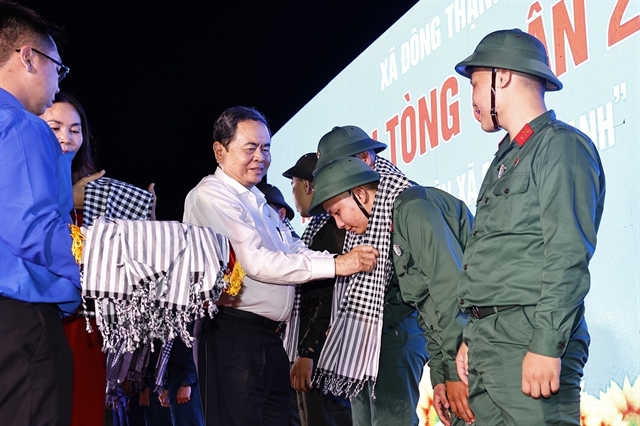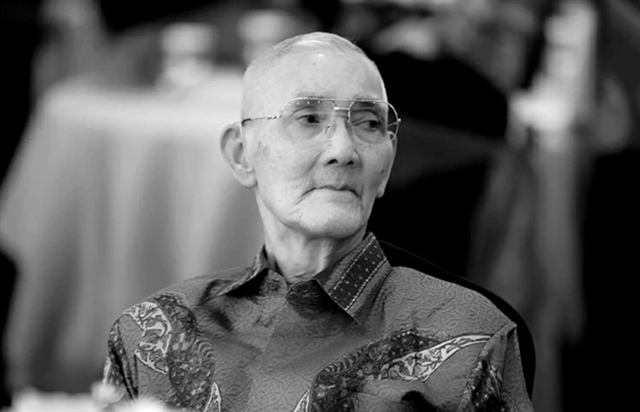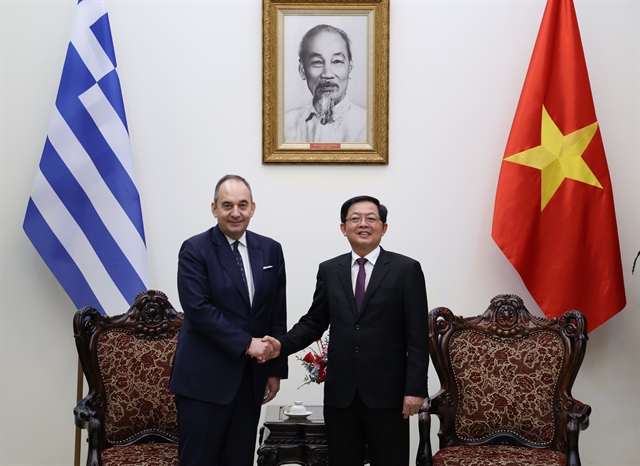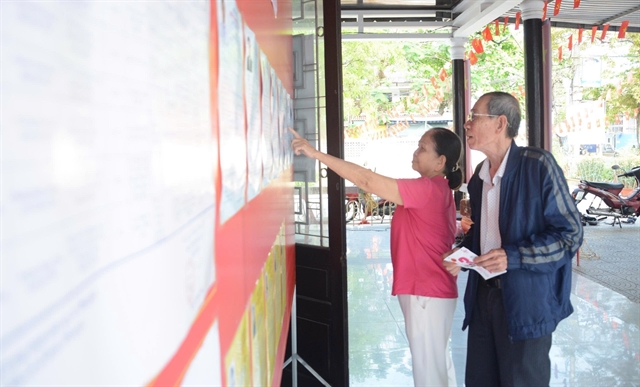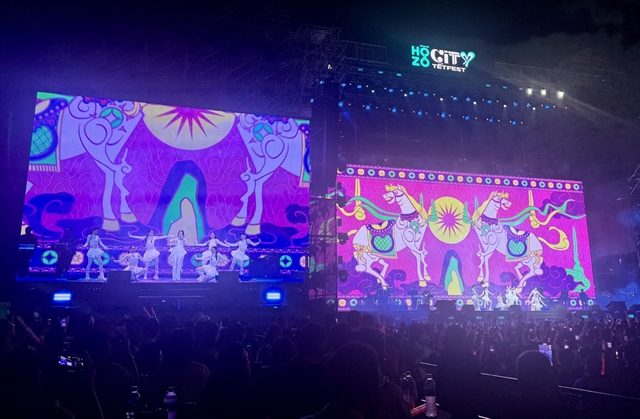 Features
Features

Hoàng Trung Hiếu, the alumni of and PhD student at the University of Sciences under the Việt Nam National University - Hồ Chí Minh City has retained his endless passion to achieve success in the study of high-technology, in particular research into artificial intelligence (AI).
n
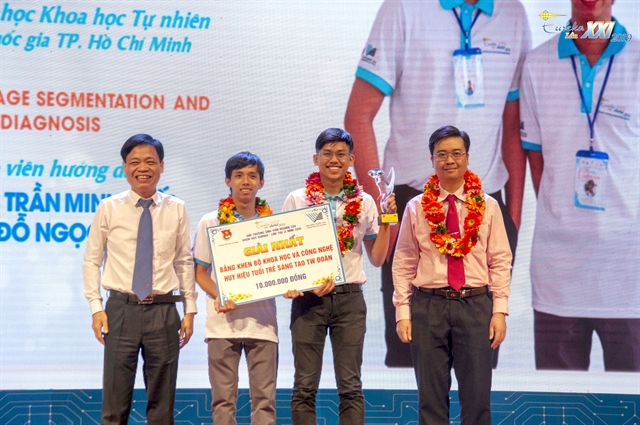
|
| Hoàng Trung Hiếu (second from right) won first prize at the Euroka contest for students in scientific research in 2019. - VNA/VNS Photo |
Hồng Giang
HCM City — Twenty-three-year-old Hoàng Trung Hiếu from HCM City has delved deeply into engineering and technology since he was a little boy.
The alumni of and PhD student at the University of Sciences under the Việt Nam National University, Hồ Chí Minh City, has retained his endless passion to achieve success in the study of high-technology, in particular research into artificial intelligence (AI).
With a raft of achievements, including authoring eight international scientific papers and receiving numerous international awards and scholarships for tertiary studies, the talented Hiếu has also been honoured as 'Excellent Student' for many years, winning prizes at international competitions on AI technology.
He was praised as an 'Outstanding Young Citizen' of HCM City in 2019.
Hiếu was born in 1997 to a family in the beach city of Nha Trang in south-central Khánh Hòa province and soon became interested in mechanics.
His talent came to light in quite an odd way.
“My parents bought me electronic toys when I was a child, but instead of playing with them I liked to take them apart to see how they work and would then re-assemble them into different toys,” he explained.
“Reading was also my favourite past-time at school, particularly about computers and technology.”
Recognising his talent when he was in primary school, Hiếu’s parents managed to send him to study at a computer centre near his home in Nha Trang.
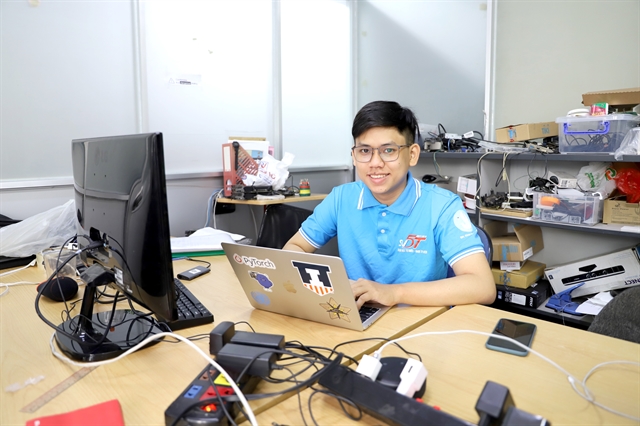
|
| Hiếu is working at the scientific research room of the University of Sciences, HCM City Việt Nam National University. — VNA/VNS Photo Hồng Giang |
He gradually finished basic classes on computer programming, creating the foundation for him to enter competitions for children at school and in his district.
With his talent constantly developing over the years, Hiếu saw success at the annual Youth and Children’s Creative Contest in Khánh Hòa until he reached Grade 9 and joined the provincial information technology (IT) team, which included selected students from different schools throughout the province.
He graduated from secondary school with distinction, and was selected for a class of gifted students at Lê Quý Đôn High School in Khánh Hòa.
“Being selected to study in such a class was great encouragement, as it meant I had a chance to continue my passion for technology,” he said.
In his early years of high school, however, he lacked confidence in his abilities.
“Though my teachers and friends told me I was smart, I didn’t feel at all confident because I saw my own achievements as being less outstanding than those of my peers,” he said. “My public speaking skills were also poor, while my knowledge about science and technology was fairly basic.”
Hiếu also thought he was incapable of pursuing long-term scientific research, until he attended a science and technology competition for southern high school students, organised by the Ministry of Education and Training in 2014, and won second prize in computer science and third prize overall.
“The competition was a turning point in my studies,” he remembers. “The experience I gained, along with the new friends I made and teachers I met, not only changed my mind but also multiplied my passion for science and helped me be more confident and acquire the basic skills needed for me to continue with scientific research.”
The next year he studied in a class for talented students in the IT faculty in the HCM City University of Sciences.
Artificial intelligence
Hiếu continued to cultivate his talent during his four years of studies at university, writing eight international scientific papers and picking up numerous international awards and scholarships, including from Odon Vallet in the school years 2015, 2016 and 2019, and the MUFG Bank Scholarship from Japan in 2018.
His subjects mainly focus on setting applications for AI and computer vision to solve problems in the medical field, as he sees health is being a field of humanities.
“The expansion and application of advanced technology will help patient treatment become more convenient and effective,” he said.
Hiếu finished the 2015 talented bachelor programme with the second-highest score and with an average academic score of 9.25.
He was retained to conduct research at the university, where together with others he was involved in many projects on the application of AI in daily life and caught the eye of the university’s scientific council.
His experience, including internships in the US and attending many domestic and foreign scientific conferences, nurtured his thinking about AI technology.
Though AI had yet to really develop in Việt Nam, students were nevertheless enthusiastic about it and were clearly talented.
“Vietnamese students are not inferior in any way, they just lack confidence,” Hiếu said.
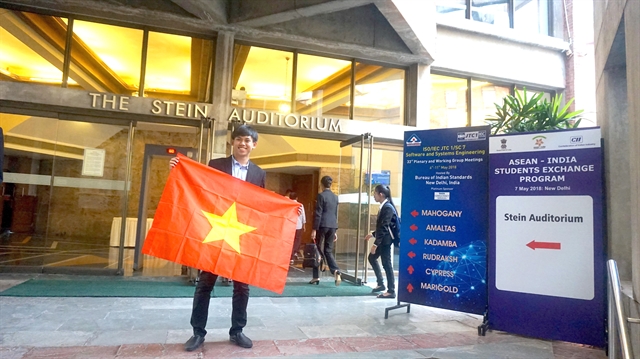
|
| Hiếu at an international student exchange programme in India. VNA/VNS Photo Hồng Giang |
International students, he believes, are confident when giving presentations and sharing their opinions, while Vietnamese students are often anxious about addressing a room full of audiences.
Hiếu encouraged other young Vietnamese students to be more open and willing in their scientific studies.
Those who wish to pursue their passion in scientific research must also possess soft skills and foreign language skills, he said.
“During their years at school, young students must try to take advantage of all the opportunities that come their way to participate in exchange programmes for international students, because through such programmes they can make foreign friends and learn from them in their way of communication and behaviour, particularly their science and technology knowledge, or simply how to work in groups and improve your foreign language skills,” Hiếu advised younger fellow students.
Students must also be able to maintain their academic ability in both basic and specialised subjects, so they have a solid foundation of knowledge and are confident, strong and energetic in communicating or giving presentations and persuasively sharing new ideas.
“I really like a view expressed in the Indian film Three Idiots, about the meaning of passion and success,” explained. “That is, ‘pursue your passion, and success will follow.’ Every young person should allow their passion to be a driving force guiding them towards self-discovery and self-development along a path of their own choosing. With determination and perseverance, I believe passion leads to success.”
Hiếu is now on the verge of fulfilling his dream of studying overseas, as he has secured a scholarship for the PhD programme at the University of Illinois at Urbana-Champaign, where he is scheduled to enrol next year.
Though his time there will last for many years, Hiếu has vowed that after graduating he will return home to continue his research and devote his talent to his homeland. — VNS
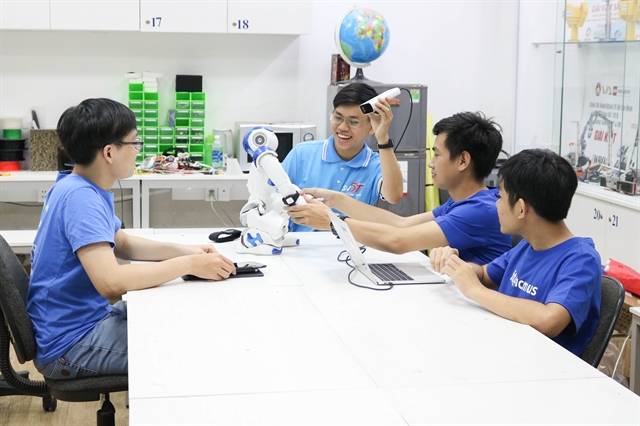
|
| Hiếu (smiling) with his research team at the university. VNA/VNS Photo Hồng Giang |

